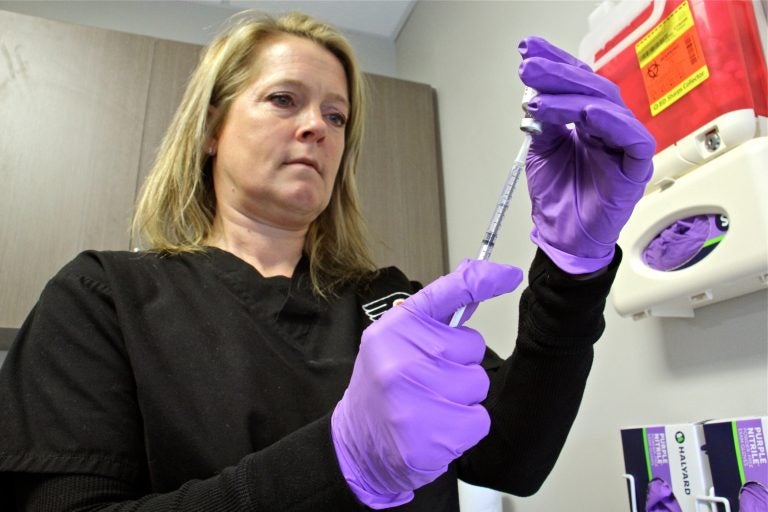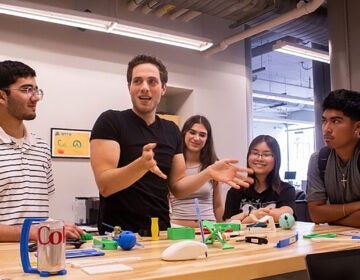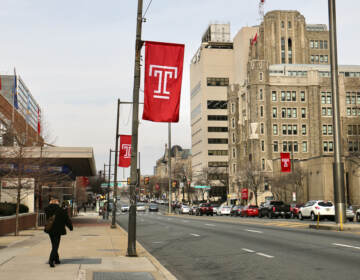Mumps outbreak at Temple University up to 74 cases, but school closing unlikely
In the face of a rising number of mumps cases, Temple University officials don't plan to shut the school. They are considering providing booster shots at no charge.

Registered nurse Nicole Rodriguez draws a dose of mumps vaccine at the Temple student health center. (Emma Lee/WHYY)
The number of Temple University students with mumps is growing.
As of Wednesday, there were 74 cases, said James Garrow, city Department of Health spokesman. That’s 20 more than Monday’s tally.
Meanwhile, students are petitioning Temple to temporarily close the university to prevent more students from getting the virus. But that move is very unlikely, one school official said.
Students experiencing mumps symptoms — painful and swollen salivary glands, fever, headache, muscle aches, fatigue, loss of appetite — should see a doctor and stay away from people for five days to avoid infecting others, Garrow said.
But to halt the outbreak, students without symptoms should consider getting an extra dose of the measles, mumps and rubella vaccine. Children generally get a first dose of the MMR vaccine at 12 months, with a second dose administered when they turn 6. Experts say the vaccine’s protection starts to wear off after 10 years.
“The CDC’s recommendation is that people who are in a setting of an outbreak of mumps to consider getting a booster dose of the MMR vaccine — we echo that recommendation,” Garrow said.
Some students say not everyone can afford the $63 cost. So they’re asking Temple to provide the shot at no charge.
“Having $63 out-of-pocket cost, that’s without insurance, is a little bit of a financial issue given the fact that we have students from various identities and socioeconomic status,” said Diamante Ortiz, a Temple junior who is running for student government under the coalition Rise TU.
“This is an epidemic, and Temple University needs to be using every resource available to make sure that this outbreak can be contained,” stated a Rise TU news release.
Temple should provide the vaccine instead of asking individuals to go find a provider, said Dr. Paul Offit, director of the Children’s Hospital of Philadelphia’s Vaccine Education Center. Everyone would be protected 10 to 14 days after getting the shot, he said.
“If you really want to control this epidemic, what you need to do is to establish centers at the university where people are going to be given the vaccine. So it’s much easier if the school pays for it and distributes it,” Offit said.
Mark Denys, director of Temple’s student and employee health services, said officials are looking into the possibility of giving free vaccines.
The best way to contain the outbreak, he said, would be keeping students with the disease away from the rest of the school community.
Officials are also directing students without insurance to health providers that offer the vaccine on a sliding scale.
Denys said it would be up to faculty to decide what sick students can do if they miss classes or evaluations, but he said that shouldn’t be a problem. Closing is not an option “at all,” he said.
City officials said no other mumps cases have been reported outside Temple University.
WHYY is your source for fact-based, in-depth journalism and information. As a nonprofit organization, we rely on financial support from readers like you. Please give today.





